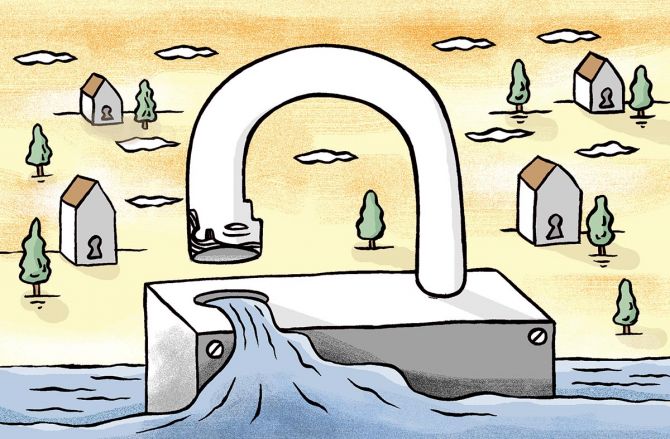The average cost of data breaches in India reached $2.18 million in 2023, marking a 28 per cent increase since 2020, according to the Reserve Bank of India's (RBI) Currency and Finance report for 2023-24.

The report said that India’s average data breach cost was still below the global average. The most common attacks in India are phishing which was at 22 per cent and stolen or compromised credentials was 16 per cent.
The automotive industry is highly vulnerable to cyber attacks, whereas the banking and financial services sector, benefiting from stringent regulations, enjoys comparatively stronger protection.
“Industry-wise distribution of cyber attacks in India shows that the automotive industry is the most vulnerable, with smart mobility application programming interfaces (APIs) and electric vehicle (EV) charging infrastructure emerging as major attack vectors.
"The BFSI sector, governed by well-defined regulations, is relatively protected from such attacks,” the report said.
Since the financial year 2017-2018, domestic digital payments have grown at an annual rate of 50 per cent in volume and 10 per cent in value.
“In India, the average cost of data breaches stands at $2.18 million in 2023, a 28 per cent increase since 2020 albeit less than the global average cost of data breach,” the report said.
Globally, cybercrime costs are projected to reach $13.82 trillion by 2028, up from $8.15 trillion in 2023.
The average cost of a data breach has also risen to $4.45 million in 2023, representing a 15 per cent increase over three years.
Recognizing these significant costs, most central banks have increased their cybersecurity investment budgets by 5 per cent since 2020, the report said.
The report highlighted that India is at the forefront of the global digital revolution, with digital technologies unlocking significant opportunities in financial inclusion and fiscal transfers.
However, it also warns of the challenges posed by these technologies, including cybersecurity issues, data privacy concerns, and risks associated with vendors and third parties.
India’s digital economy, which now accounts for approximately 10 per cent of the country's GDP is expected to double to 20 per cent by 2026.
Additionally, India is a global leader in real-time payments, commanding 48.5 per cent of the worldwide market.
“India is leading the world with a share of 48.5 per cent in global real-time payments volume.
"Global remittances that are increasingly being effected through mobile money and digital platforms are estimated to have increased to $857.3 billion in 2023, led by India ($115.3 billion),” the report said.












 © 2025
© 2025